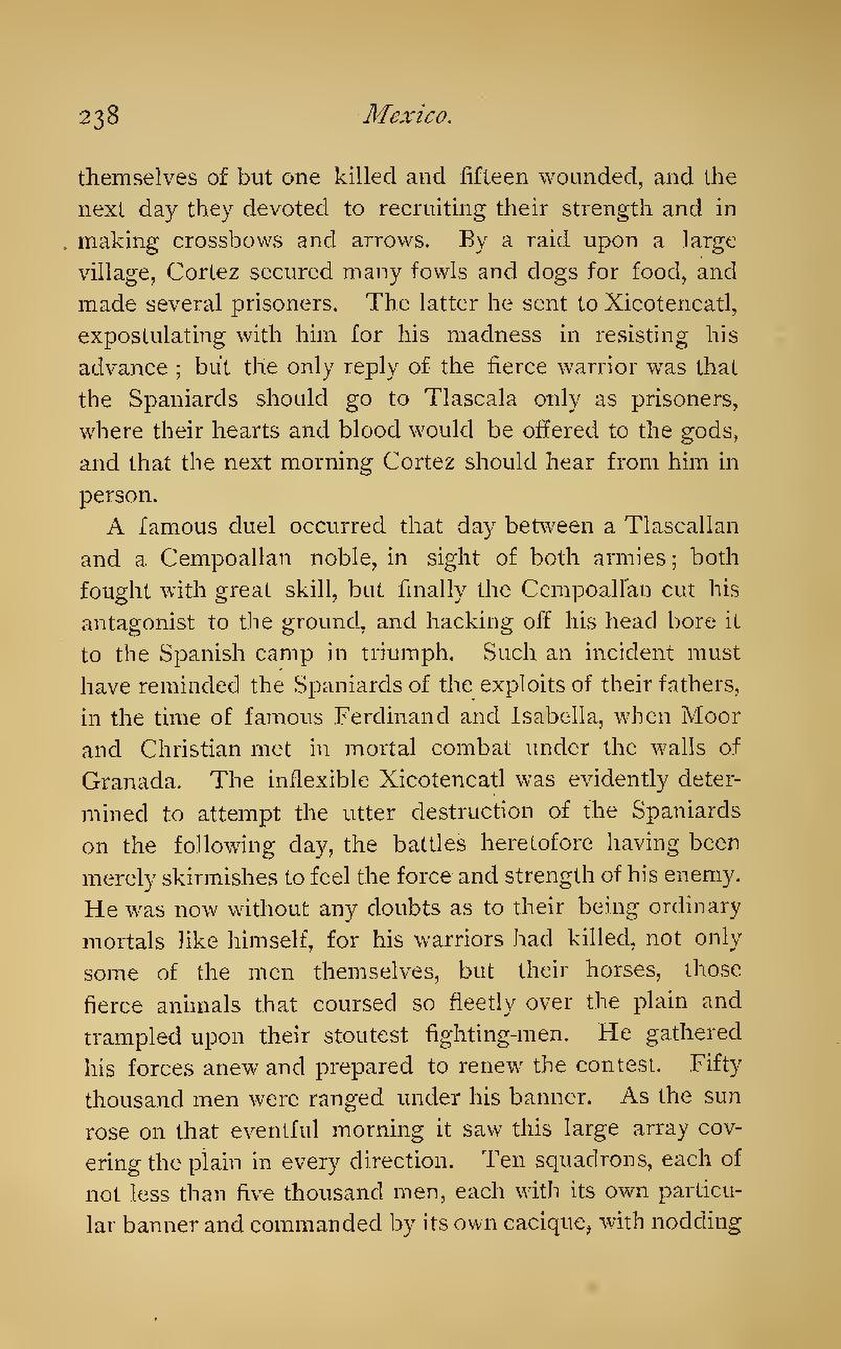themselves of but one killed and fifteen wounded, and the next day they devoted to recruiting their strength and in making crossbows and arrows. By a raid upon a large village, Cortez secured many fowls and dogs for food, and made several prisoners. The latter he sent to Xicotencatl, expostulating with him for his madness in resisting his advance; but the only reply of the fierce warrior was that the Spaniards should go to Tlascala only as prisoners, where their hearts and blood would be offered to the gods, and that the next morning Cortez should hear from him in person.
A famous duel occurred that day between a Tlascallan and a Cempoallan noble, in sight of both armies; both fought with great skill, but finally the Cempoallan cut his antagonist to the ground, and hacking off his head bore it to the Spanish camp in triumph. Such an incident must have reminded the Spaniards of the exploits of their fathers, in the time of famous Ferdinand and Isabella, when Moor and Christian met in mortal combat under the walls of Granada. The inflexible Xicotencatl was evidently determined to attempt the utter destruction of the Spaniards on the following day, the battles heretofore having been merely skirmishes to feel the force and strength of his enemy. He was now without any doubts as to their being ordinary mortals like himself, for his warriors had killed, not only some of the men themselves, but their horses, those fierce animals that coursed so fleetly over the plain and trampled upon their stoutest fighting-men. He gathered his forces anew and prepared to renew the contest. Fifty thousand men were ranged under his banner. As the sun rose on that eventful morning it saw this large array covering the plain in every direction. Ten squadrons, each of not less than five thousand men, each with its own particular banner and commanded by its own cacique, with nodding
